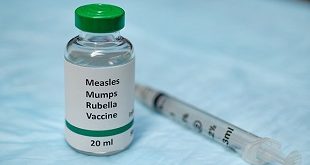
People with type 2 diabetes should discuss the risks of using ibuprofen with their doctors
Kampala, Uganda | AGENCIES | Researchers and clinicians know that people with type 2 diabetes face an elevated risk of heart failure. Even without a heart disease diagnosis, they have more than double the risk of developing heart failure compared with the general population, per previous research.
New research suggests that taking common pain medications such as Advil or Motrin (ibuprofen) may increase that risk further.
Using nonsteroidal anti-inflammatory drugs (NSAIDs) for a short time was associated with first-time hospitalisation for heart failure in people with type 2 diabetes, according to a new study published in the Journal of the American College of Cardiology.
NSAIDs are known to be associated with cardiovascular risk and are usually not recommended for people with known heart disease. The study suggests that, while more research is needed, it might be prudent to extend the recommendation to individuals with type 2 diabetes, even if they do not have a heart disease diagnosis.
NSAID use in people with Type 2 diabetes
In the Danish study of over 330,000 individuals with type 2 diabetes, researchers found that about 1 in 6 people filled at least one NSAID prescription within one year. This fact alone is worth noting, says lead author Anders Holt, MD, of Copenhagen University Hospital in Denmark.
“One of the more surprising findings, to me, was the quite substantial use of prescribed NSAIDs in a population of patients with diabetes — a patient group with a well-established cardiovascular risk,” says Dr. Holt.
Investigators used Danish registries to identify people diagnosed with TD2 between 1998 to 2021. The average age was 62 years old, and 44 percent were women. People with diagnosed heart failure or a rheumatological condition requiring long-term NSAID use were excluded from the study.
Within the first year of their inclusion in the study, 16 percent of the subjects filled at least one NSAID prescription, while 3 percent filled at least three prescriptions. Ibuprofen was most common (12.2 percent), followed by diclofenac (3.3 percent), naproxen (0.9 percent), and celecoxib (0.4 percent). (Unlike in the United States, research shows that NSAIDs are commonly prescribed in Denmark rather than purchased over the counter.)
During a median follow-up of nearly six years, over 23,000 study subjects were hospitalised with heart failure for the first time.
NSAID use was associated with 40 percent higher relative risk of first-time heart failure hospitalisation. When individual NSAIDs were analyzed separately, the risk of heart failure hospitalizstion was increased following the use of diclofenac or ibuprofen, but not with celecoxib and naproxen, potentially due to the small percentage of people filling those prescriptions.
The researchers also looked at risk of heart failure with NSAID use in subgroups of patients. They found no association of NSAID use and increased risk in people with well-controlled diabetes. Strong associations were found in people ages 65 and older, while no association was found in those younger than 65. The strongest association was found in very infrequent or new users of NSAIDs. Data on over-the-counter use of NSAIDs were not included in the study.
Although this is a single study, it was conducted in a very large group of patients using real world data, which makes these findings very compelling, says Salpy V. Pamboukian, MD, a cardiologist at UW Medicine in Seattle who specializes in advanced heart failure and transplant. Dr. Pamboukian was not involved in this research.
“Cardiologists have long recommended avoidance of NSAIDs in patients with an established diagnosis of heart failure, for fears of precipitating kidney failure or worsening heart failure. This study now extends these concerns to patients with type 2 diabetes without a previous heart failure diagnosis. This is very significant,” she says.
NSAIDs are typically used to relieve the pain of headaches, back pain, and arthritis. The most common drugs in this class are aspirin, ibuprofen (Motrin and Advil) and naproxen sodium (Aleve).
What is the connection?
According to the Centers for Disease Control and Prevention (CDC), about 6.2 million U.S. adults have heart failure, which is when the heart isn’t pumping as well as it should be. When a person has heart failure, the cells in the body don’t get enough blood, which can cause fatigue and shortness of breath, according to the American Heart Association (AHA).
Previous research published in the BMJ found that in the general population, current use (within the last two weeks) of any NSAID was associated with a 19 percent increase of risk of hospital admission for heart failure compared with people who had not used NSAIDS for at least six months. The higher the NSAID dose the person was taking, the greater the risk.
Given the higher risk of heart failure for people with type 2 diabetes, NSAIDs could be even more detrimental in this at-risk group, according to the authors.
NSAIDS are readily available and used by many patients to treat a variety of ailments, many of which they might never talk to a doctor about, says Pamboukian.
“These findings highlight the need for education in patients with cardiac risk factors, such as diabetes, on the dangers that over-the-counter medications may pose. Patients assume medications that can be purchased without a prescription are ‘safe,’ but as this study shows, even commonly used medications can pose risk, even if used for a short period of time,” she says.
Any patient who takes chronic medication needs to understand that any new drug they use can have interactions or adverse effects, and if they aren’t sure about the safety of a medication (even a commonly used one) they should check with their medical provider, says Pamboukian.
It would be premature to make clinical recommendations solely based on these findings, which show an association but don’t prove that the NSAIDs caused the increased risk, says Holt.
“However, the subgroup analyses provide some interesting insight. In practice, it could look as if older patients, NSAID naive patients, patients with uncontrolled diabetes, and patients on both RASi (renin angiotensin system inhibitor) and diuretics appear to be more susceptible to the proposed association. On the contrary, no significant associations were found in younger patients, and in patients with well-controlled diabetes,” he says.
If NSAID treatment is well indicated and needed, the “high-risk” subgroups might benefit the most from closer follow-up, reduced dosage, or other mitigation strategies, although the current data doesn’t support that practice more research is needed, says Holt.
Should people with T2D avoid taking NSAIDs?
Pamboukian recommends that people with diabetes, as well as other cardiovascular conditions such as hypertension (especially if they are taking other cardiac medications), avoid NSAIDs altogether.
The “triple whammy” of taking NSAIDs, diuretics, and ACE inhibitors or ARBs places patients at a very high risk of heart and kidney failure, she says. “Other analgesics can be used and nonpharmacologic therapies to treat pain can be explored as alternatives to NSAIDS. I tell my patients that life is all about ‘risk versus benefit’ as long as they are informed, it is ultimately up to them to decide if the benefits of NSAIDs are worth the risks,” says Pamboukian.
*****
Source:
 The Independent Uganda: You get the Truth we Pay the Price
The Independent Uganda: You get the Truth we Pay the Price



